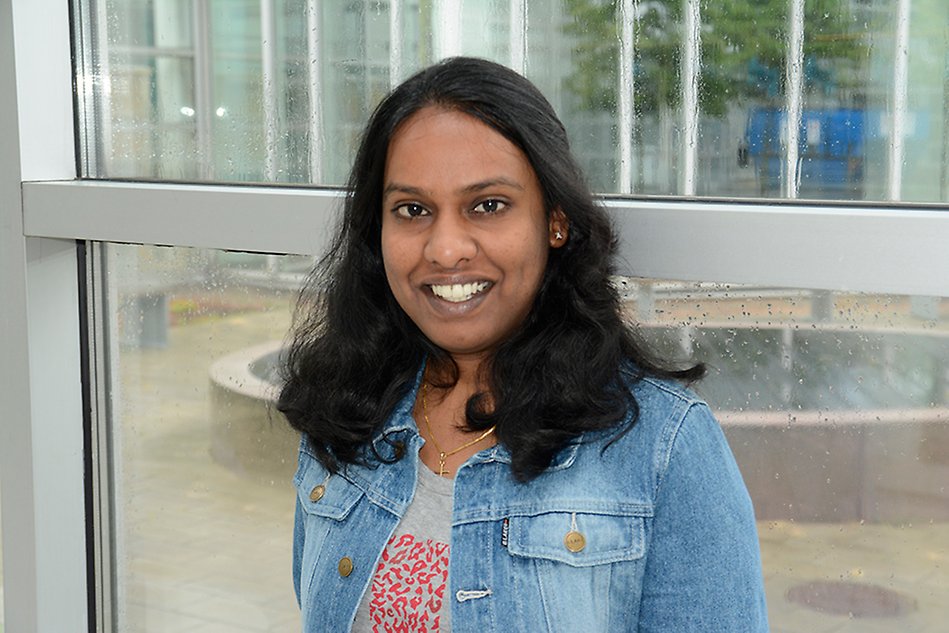Jennifer David, Information Technology
Jennifer David comes from India and is a doctoral student in Embedded and Intelligent Systems. She is working at Halmstad University together with many other researchers from different parts of the world. Jennifer David thinks that the cultural exchange both opens up the mind and is good for her personal development.

Jennifer David.
What is your research field?
”I work with strategic vehicle research and innovation, specialising in autonomous trucks i.e. trucks that drive themselves. The project is called Cargo-ANTs and is financed by the European Union. The idea is that automatically steered vehicles will be able to navigate themselves through cargo terminals; at the same time making the journey both quicker and safer. My research involves developing algorithms, which plan the routes of the autonomous vehicles making sure they avoid all the obstacles to reach their destinations.”
What is it like to be a doctoral student?
”It is basically research work, and therefore it is often hectic. On some occasions it is stressful as you have a deadline to reach, but on other occasions it's much more fun. It also depends on how much you put into it yourself and how much guidance you receive. You need to work hard every day, and with proper guidance things become increasingly easier. It's just like any other job really, but a little bit more ’geeky’.”
What is a typical day like for you?
”Most mornings are busy with meetings and lectures; either teaching or being taught. In the afternoons, we might work with something to be ready for a deadline. It could be writing a scientific article, or to have everything ready for a new experiment. You must be extremely organised to be able to prioritise and focus on just one thing at a time.”
What's it like to come to Sweden to do your PhD?
”Most Swedes speak English very well, so communication is not a problem. To be honest, people have been both very helpful and pleasant. At the university, I work at the laboratory for intelligent systems and there are many people who come from different parts of the world. I have several friends at the lab that help me with everything possible and we socialise, not only during working hours, but also in our spare time. It helps you to get to know different cultures; which opens up your mind to see the world in a broader perspective. It is also good for your own personal development.”
What's it like to teach?
”I have not yet taught myself, but I have been a teaching assistant for a course on ’cyber-physical systems’ (CPS). In fact, the students helped me to understand the concepts better from different perspectives as teaching is a process in which both the teacher and student learn from each other.”
Do you have any advice for new doctoral students?
”I would say it is more fun if you see yourself as a scientist, working on research, rather than as a student. It's better to be only dependent on your supervisor in your the first year and then try to become more and more independent. Of course you need help being a postgraduate student, but not with everything.
During your time as a PhD student you will experience both ups and downs in your research. Therefore, after five years you have not only got your PhD degree, but you have also learned about life itself and how it works.”
Text and photo: Mikael Evard

